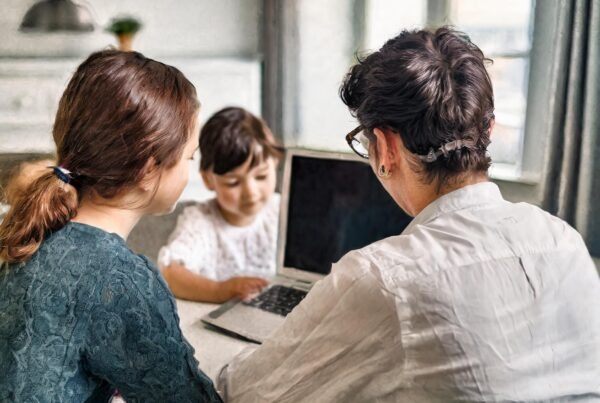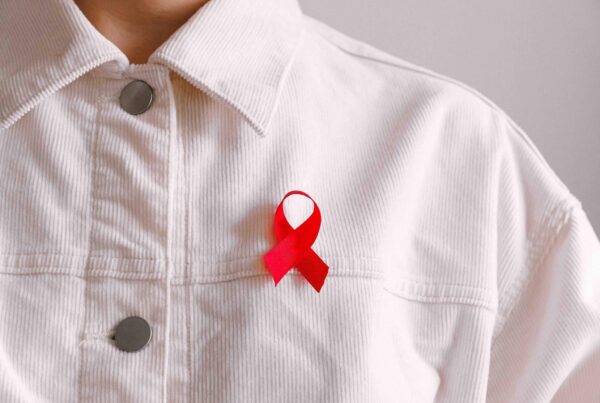Trigger warning: This article discusses difficult feelings
and personal experiences that may trigger unpleasant memories
or flashbacks for some readers. The text may cause you feelings
of distress as it deals with issues such as mental health,
harassment, experiences of discrimination, suicide, violence or
other similar issues. For some people, these issues may provoke
negative reactions.
Please be mindful or do not read this text
if this may be the case for you.
Mental health awareness should be increased globally, whether through hashtags like #mentalhealthmatters, television interviews like Prince Harry’s, or prominent acknowledgment like Oprah Winfrey’s. To achieve the goal, it is important to understand what mental health means and what mental illnesses are. After all, mental illnesses may strike anyone at any time, especially in times of crisis.
Mental health simply explained
Celebrity endorsements and public debates enhance mental health awareness in our society. If you ask the World Health Organization (WHO), it describes mental health as a “(…) state of well-being in which a person can realize his or her potential, cope with the normal stresses of life, work productively, and contribute to his or her community.”
This phrase means that your mental health is made up of various puzzle pieces. For example, the quality of your connections with other people in your life, work satisfaction, overall life satisfaction, and psychological resilience. The greater your mental health, the better you will be able to deal with difficult situations, get engaged in social activities, and cope with emotional and economic crises such as the COVID-19 pandemic corona.
Your mental health has an impact on your lifetime
All offers of assistance have one thing in common: they require you to go to the doctor not only if you have physical complaints, but also if you have mental problems.
As a result, there is a proven link between mental disorders and non-communicable diseases. People suffering from mental diseases die 20 years younger than the average population, which is terrifying and true. The World Health Organization provided this information in a fact sheet.
![]()
The Social Importance of Mental Health
Because mental health can affect all aspects of life, it is of significant social importance. There is still a long way to go before going to therapy for mental disorders is considered entirely “normal”. The route may be rough and difficult. But one thing is for sure. Celebrities such as Oprah Winfrey, Prince Harry, Naomi Osaka, and Simone Biles show how it is done. They rush ahead. Show their vulnerability. Talk about their mental difficulties so that other people and you may talk about mental illness more easily.
Mental health matters – since it affects everyone in every part of the world.
Mental health on TV
Prince Harry agreed to be filmed during a therapy session for the documentary series “The Me You Can’t See“. He has shown his vulnerability to the world openly and honestly. Oprah Winfrey and Prince Harry have released the series, which has been running on Apple TV+ since May 21, intending to remove social prejudices from mental problems such as depression and bipolar disorder.
Excerpts from the discussion “The Me You Can’t See: A Path Forward” with Oprah Winfrey, Prince Harry, and experts.

Mental exhaustion in sports
The extent to which mental diseases are still stigmatized became obvious when two female athletes made history by refusing to compete in any sport during the 2020 Olympic Games (which were held in 2021).
![]()
Naomi Osaka revealed at the end of July that she has been suffering from depression since the 2018 US Open. The Japanese tennis player felt vulnerable and wanted to protect herself with her press boycott at the French Open in 2021. In the end, she withdrew from the competition entirely. Simone Biles, an American gymnast, has decided not to compete in four of the five finals in the Olympic Games in Tokyo 2021 due to mental health issues. Mental health comes first for the four-time gold medallist. Michelle Obama, among others, has expressed support for her stance. On the other hand, journalists like Piers Morgan called her a “joke”. The discussion is highly emotional. Especially during the COVID-19 pandemic.
Mental illnesses due to the Corona Crisis
Because of the COVID-19 pandemic, more people in our society are suffering for example from loneliness, existential worries and depression. Children, as well as adults and adolescents, are affected. According to a survey conducted by medical professionals in Hamburg, one out of every third child behaved conspicuously. Because the number of mental illnesses is increasing globally, partially because of the Corona crisis, Mental Health Europe has announced the second annual European “Mental Health Awareness Week” in May 2021. Its goal is to improve mental health awareness across all groups.
Mental health prevention and assistance
Going to the doctor for physical pain is a habit for most people. But what about disease prevention? Do you have frequent check-ups?
In any case, women are more likely to take advantage of health promotion initiatives. The precise explanation for this is still unknown. Certainly, the stereotypical man is successful, does not express emotions, and, above all, shows no weakness. Traditional male images make seeing a doctor difficult. The fact that about one-third of all suicides in Germany are committed by men demonstrates the extent to which men suffer from mental issues. And that is just one of many examples.
![]()
In contrast to the mental health of men, there are very few studies on the mental health of people with a migrant background or foreground. According to the Gutenberg Health Study, people of migrant background who emigrated to Germany after 1949 are more likely to suffer from depression, suicidal thoughts, and anxiety than people of non-immigration origin.
To be more precise, people from the first generation of immigrants are 20 to 40 percent more likely to suffer from mental problems.
Men and persons with migrant backgrounds from the first generation are more likely to have mental health problems than the rest of society. But in general, mental illnesses can affect all people of all ages. As a result, increasing social awareness for mental health is even more important. How do you do that?
How you can help yourself and others

Photo: Alex Green via pexels.com
There are many ways to raise awareness for mental health. The first step might be to explore the topics of “mental health” and “mental illness”. The men’s or women’s health portal from the Federal Centre for Health Education can help you with this. Experts reviewed the gender-specific information. Of course, you might ask yourself if you have a mental disease.
Self-testing is an option. It is merely a first examination and cannot substitute a medical diagnosis. The website “psychenet.de“, where you can take all of the self-tests, is a well-established information portal on mental illnesses and mental health.
If necessary, you can find a list of contacts about mental health here.
7 tips to strengthen your soul in everyday life
If you want to improve your mental health, “Mental Health Wellness Tips” can help you. The video explains the following six suggestions:
- Focus on the positive in life
- Practise gratitude in everyday life
- Building qualitatively good relationships with other people
- Stay physically fit
- Developing strong coping skills
- Seek professional help if needed
- WirHelfen.eu also recommends listening to music or spending time in natur
M. K.
Get help if you have suicidal thoughts: If you are affected
by suicidal tendencies please get help immediately.
You can find someone to talk to at the anonymous telephone
counselling service 24/7.
The german helpline: 0800/111 0 111 and 0800/111 0 222
or see www.telefonseelsorge.de.






